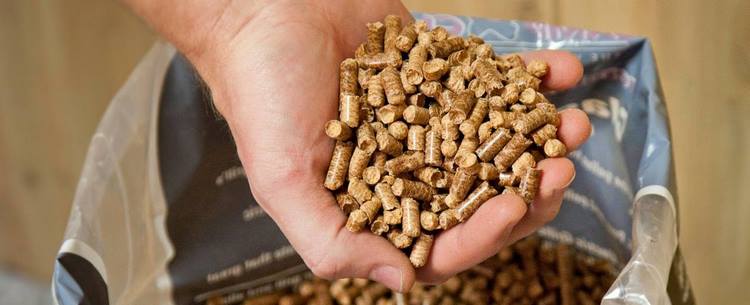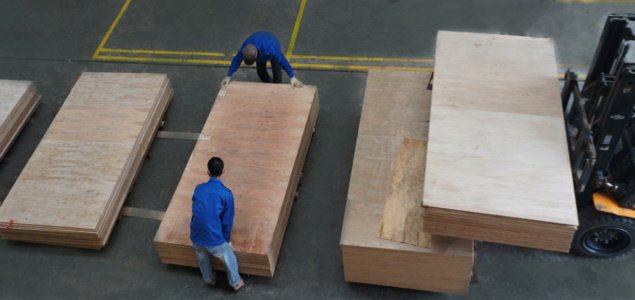Contrary to the gloomy picture of the wood industry, according to experts, the export of wood pellets is currently on the rise thanks to many favorable factors from the world market. In the first 6 months of 2023, pellet exports are estimated at 1.85 million tons, with an estimated turnover of nearly 300 million USD. Korea and Japan are the two largest tablet consumption markets of Vietnam.

The world’s second largest exporter of wood pellets
According to the Vietnam Timber and Forest Products Association (VIFOREST), Vietnam has now become the world’s second largest producer of pellets, after the US. Most of the pellets produced in Vietnam are exported with over 95% of the volume exported to Korea and Japan as input materials for power generation. A small amount is consumed domestically in Vietnam as fuel for boilers, kilns, etc. From 2013 to 2022, the volume and value of Vietnam’s pellet exports have grown tremendously. ranking, with an increase of 28 and 34 times, respectively.
According to the General Department of Customs, in 2022, Vietnam exports 4.9 million tons of wood pellets with a turnover of 0.79 billion USD. In the first 6 months of 2023, pellet exports are estimated at 1.85 million tons, with an estimated turnover of nearly 300 million USD. Currently, Vietnam is the main source of tablet computers for Korea (accounting for 80% of the total demand of this market), so in the first 6 months of 2023, the amount of Vietnamese tablets exported to Korea reached approx. 0.8 million tons. The first months of 2023 witnessed huge price fluctuations of Vietnamese pellets exported to Korea. The lowest import-export price (FOB Vietnam) dropped to only 78 USD/ton (April 2023). This is a price that is determined to be lower than the production price, causing some Vietnamese tablet businesses, especially small businesses with no financial potential, to stop production. After that, the export price level began to increase gradually. The price in early July reached about 110 USD/ton and is trending up.
According to Vietforest’s analysis, one of the reasons for the high price of imported tablets from Vietnam to Korea is the increase in the price of input materials for tablet production in Vietnam. Currently, the supply from Vietnam currently accounts for 80% of Korea’s total imports. Different from the source of raw materials for making pellets exported to the Japanese market (mainly using wood from FSC-certified domestic forests), the source of pellets exported to Korea is mainly a by-product of the industry. company. wood processing industry (sawdust, shavings, bits…). Because the Southeast provinces are the focus of export wood processing enterprises, Korean export pellet production companies are also concentrated in this area. Recently, the output market of wood products has dropped sharply, causing the source of by-products from processing to decrease deeply. In the context that the demand for tablets in Korea has not decreased, the supply of input materials for tablet production has decreased, leading to competition among manufacturing companies, pushing up the price of tablet raw materials. It is expected that by the end of 2023, Vietnam’s export volume to this market will reach about 1-1.5 million tons.
Thus, it can be seen that the demand for using tablets from Korea is increasing again. However, the way Korean businesses buy goods has changed a lot. Instead of buying in the form of bulk bidding, Korean enterprises now divide bidding shipments into smaller quantities (monthly) to reduce price pressure (buy in bulk, inventory).
The Japanese market is highly stable in terms of both quantity and price
Besides the volatility of the Korean market, the Japanese market is more stable, with long-term orders (sales contracts usually 10-15 years) currently being exported with prices ranging from about 145 USD. USD – 165 USD/ton (FOB Vietnam). In addition to long-term contracts, some Japanese enterprises also perform short-term contracts with some Vietnamese suppliers. Short-term contract prices are usually lower than long-term contract prices (currently around $125/ton, FOB), the quality is equivalent to products produced under long-term contracts.
In the first 5 months of 2023, the volume of Vietnamese pellets exported to Japan reached 0.87 million tons, with a turnover of 151 million USD. Export volume decreased by 5.7% while turnover increased by 19.7% over the same period in 2022. Up to now, Vietnam has exported about 1 million tons of tablets to Japan.
According to the assessment, the demand for using tablets in Japan will increase sharply in the coming time. Information from some enterprises said that each year Japan uses about 8 million tons of tablets, of which 40-50% are oil palm kernel shells, the rest (50 – 60%) are wood pellets. It is expected that by 2030, the demand for pellets in Japan will increase to 20 million tons, of which the amount of wood pellets accounts for about 13-15 million tons (the rest is oil palm kernels). Demand for tablets in Japan will expand in the near future. This is a great opportunity for Vietnamese enterprises, especially those with stable and certified sustainable input materials, large-scale manufacturing plants and methodical management.
According to experts, the export of wood pellets is currently on the rise thanks to many favorable factors from the world market. Accordingly, the world’s demand for tablets will increase by about 250% in the next decade, reaching 36 million tons from 14 million tons in 2017. In recent years, demand has increased mainly in European countries and Japan. Japanese and Korean. However, Vietnam’s tablet manufacturing industry has the opportunity to expand the market when consumer demand in Vietnam begins to show signs of rapid growth due to the Government’s efforts to fulfill its commitments to reduce greenhouse gas emissions. glass and energy use. clean energy, including pellets to replace coal in energy production. Along with that, the Power Plan VIII approved by the Government on May 15 also prioritizes the development of renewable energy sources, including biomass power to replace high-emission coal power. Therefore, the demand for tablets in the domestic market is likely to expand very quickly in the near future.




